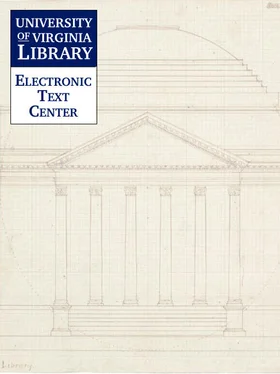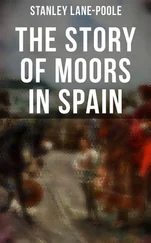Hendrik Loon - The Story of Mankind
Здесь есть возможность читать онлайн «Hendrik Loon - The Story of Mankind» весь текст электронной книги совершенно бесплатно (целиком полную версию без сокращений). В некоторых случаях можно слушать аудио, скачать через торрент в формате fb2 и присутствует краткое содержание. Год выпуска: 2000, Издательство: Electronic Text Center. University of Virginia Library., Жанр: Старинная литература, на английском языке. Описание произведения, (предисловие) а так же отзывы посетителей доступны на портале библиотеки ЛибКат.
- Название:The Story of Mankind
- Автор:
- Издательство:Electronic Text Center. University of Virginia Library.
- Жанр:
- Год:2000
- ISBN:нет данных
- Рейтинг книги:3 / 5. Голосов: 1
-
Избранное:Добавить в избранное
- Отзывы:
-
Ваша оценка:
- 60
- 1
- 2
- 3
- 4
- 5
The Story of Mankind: краткое содержание, описание и аннотация
Предлагаем к чтению аннотацию, описание, краткое содержание или предисловие (зависит от того, что написал сам автор книги «The Story of Mankind»). Если вы не нашли необходимую информацию о книге — напишите в комментариях, мы постараемся отыскать её.
The Story of Mankind — читать онлайн бесплатно полную книгу (весь текст) целиком
Ниже представлен текст книги, разбитый по страницам. Система сохранения места последней прочитанной страницы, позволяет с удобством читать онлайн бесплатно книгу «The Story of Mankind», без необходимости каждый раз заново искать на чём Вы остановились. Поставьте закладку, и сможете в любой момент перейти на страницу, на которой закончили чтение.
Интервал:
Закладка:
Then there were other critics, who accused me of direct unfairness. Why did I leave out such countries as Ireland and Bulgaria and Siam while I dragged in such other countries as Holland and Iceland and Switzerland? My answer was that I did not drag in any countries. They pushed themselves in by main force of circumstances, and I simply could not keep them out. And in order that my point may be understood, let me state the basis upon which active membership to this book of history was considered.
There was but one rule. ``Did the country or the person in question produce a new idea or perform an original act without which the history of the entire human race would have been different?'' It was not a question of personal taste. It was a matter of cool, almost mathematical judgment. No race ever played a more picturesque rôle in history than the Mongolians, and no race, from the point of view of achievement or intelligent progress, was of less value to the rest of mankind.
The career of Tiglath-Pileser, the Assyrian, is full of dramatic episodes. But as far as we are concerned, he might just as well never have existed at all. In the same way, the history of the Dutch Republic is not interesting because once upon a time the sailors of de Ruyter went fishing in the river Thames, but rather because of the fact that this small mud-bank along the shores of the North Sea offered a hospitable asylum to all sorts of strange people who had all sorts of queer ideas upon all sorts of very unpopular subjects.
It is quite true that Athens or Florence, during the hey-day of their glory, had only one tenth of the population of Kansas City. But our present civilisation would be very different had neither of these two little cities of the Mediterranean basin existed. And the same (with due apologies to the good people of Wyandotte County) can hardly be said of this busy metropolis on the Missouri River.
And since I am being very personal, allow me to state one other fact.
When we visit a doctor, we find out before hand whether he is a surgeon or a diagnostician or a homeopath or a faith healer, for we want to know from what angle he will look at our complaint. We ought to be as careful in the choice of our historians as we are in the selection of our physicians. We think, ``Oh well, history is history,'' and let it go at that. But the writer who was educated in a strictly Presbyterian household somewhere in the backwoods of Scotland will look differently upon every question of human relationships from his neighbour who as a child, was dragged to listen to the brilliant exhortations of Robert Ingersoll, the enemy of all revealed Devils. In due course of time, both men may forget their early training and never again visit either church or lecture hall. But the influence of these impressionable years stays with them and they cannot escape showing it in whatever they write or say or do.
In the preface to this book, I told you that I should not be an infallible guide and now that we have almost reached the end, I repeat the warning. I was born and educated in an atmosphere of the old-fashioned liberalism which had followed the discoveries of Darwin and the other pioneers of the nineteenth century. As a child, I happened to spend most of my waking hours with an uncle who was a great collector of the books written by Montaigne, the great French essayist of the sixteenth century. Because I was born in Rotterdam and educated in the city of Gouda, I ran continually across Erasmus and for some unknown reason this great exponent of tolerance took hold of my intolerant self. Later I discovered Anatole France and my first experience with the English language came about through an accidental encounter with Thackeray's ``Henry Esmond,'' a story which made more impression upon me than any other book in the English language.
If I had been born in a pleasant middle western city I probably should have a certain affection for the hymns which I had heard in my childhood. But my earliest recollection of music goes back to the afternoon when my Mother took me to hear nothing less than a Bach fugue. And the mathematical perfection of the great Protestant master influenced me to such an extent that I cannot hear the usual hymns of our prayer- meetings without a feeling of intense agony and direct pain.
Again, if I had been born in Italy and had been warmed by the sunshine of the happy valley of the Arno, I might love many colourful and sunny pictures which now leave me indifferent because I got my first artistic impressions in a country where the rare sun beats down upon the rain-soaked land with almost cruel brutality and throws everything into violent contrasts of dark and light.
I state these few facts deliberately that you may know the personal bias of the man who wrote this history and may understand his point-of-view. The bibliography at the end of this book, which represents all sorts of opinions and views, will allow you to compare my ideas with those of other people. And in this way, you will be able to reach your own final conclusions with a greater degree of fairness than would otherwise be possible.
After this short but necessary excursion, we return to the history of the last fifty years. Many things happened during this period but very little occurred which at the time seemed to be of paramount importance. The majority of the greater powers ceased to be mere political agencies and became large business enterprises. They built railroads. They founded and subsidized steam-ship lines to all parts of the world. They connected their different possessions with telegraph wires. And they steadily increased their holdings in other continents. Every available bit of African or Asiatic territory was claimed by one of the rival powers. France became a colonial nation with interests in Algiers and Madagascar and Annam and Tonkin (in eastern Asia). Germany claimed parts of southwest and east Africa, built settlements in Kameroon on the west coast of Africa and in New Guinea and many of the islands of the Pacific, and used the murder of a few missionaries as a welcome excuse to take the harbour of Kisochau on the Yellow Sea in China. Italy tried her luck in Abyssinia, was disastrously defeated by the soldiers of the Negus, and consoled herself by occupying the Turkish possessions in Tripoli in northern Africa. Russia, having occupied all of Siberia, took Port Arthur away from China. Japan, having defeated China in the war of 1895, occupied the island of Formosa and in the year 1905 began to lay claim to the entire empire of Corea. In the year 1883 England, the largest colonial empire the world has ever seen, undertook to ``protect'' Egypt. She performed this task most efficiently and to the great material benefit of that much neglected country, which ever since the opening of the Suez canal in 1868 had been threatened with a foreign invasion. During the next thirty years she fought a number of colonial wars in different parts of the world and in 1902 (after three years of bitter fighting) she conquered the independent Boer republics of the Transvaal and the Orange Free State. Meanwhile she had encouraged Cecil Rhodes to lay the foundations for a great African state, which reached from the Cape almost to the mouth of the Nile, and had faithfully picked up such islands or provinces as had been left without a European owner.
The shrewd king of Belgium, by name Leopold, used the discoveries of Henry Stanley to found the Congo Free State in the year 1885. Originally this gigantic tropical empire was an ``absolute monarchy.'' But after many years of scandalous mismanagement, it was annexed by the Belgian people who made it a colony (in the year 1908) and abolished the terrible abuses which had been tolerated by this very unscrupulous Majesty, who cared nothing for the fate of the natives as long as he got his ivory and rubber.
As for the United States, they had so much land that they desired no further territory. But the terrible misrule of Cuba, one of the last of the Spanish possessions in the western hemisphere, practically forced the Washington government to take action. After a short and rather uneventful war, the Spaniards were driven out of Cuba and Puerto Rico and the Philippines, and the two latter became colonies of the United States.
Читать дальшеИнтервал:
Закладка:
Похожие книги на «The Story of Mankind»
Представляем Вашему вниманию похожие книги на «The Story of Mankind» списком для выбора. Мы отобрали схожую по названию и смыслу литературу в надежде предоставить читателям больше вариантов отыскать новые, интересные, ещё непрочитанные произведения.
Обсуждение, отзывы о книге «The Story of Mankind» и просто собственные мнения читателей. Оставьте ваши комментарии, напишите, что Вы думаете о произведении, его смысле или главных героях. Укажите что конкретно понравилось, а что нет, и почему Вы так считаете.












